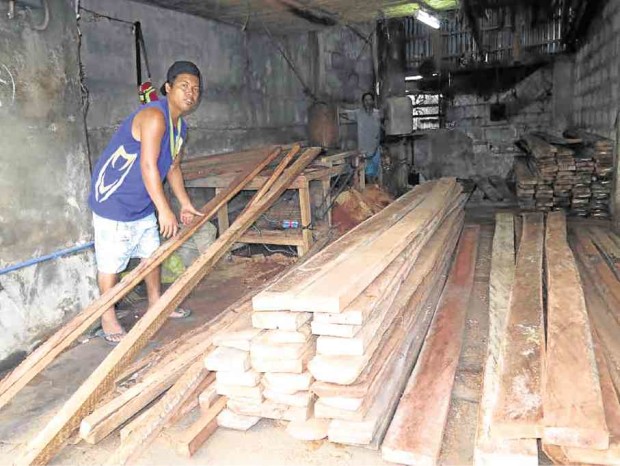Quezon governor stops cutting of coconut trees
LUCENA CITY—Citing the need to preserve Quezon province’s natural resources, Gov. David Suarez has suspended the cutting of coconut trees, especially if these would be processed into commercial lumber.
“The vast natural resources of the province is under immediate threat due to unrestrained and unnecessary cutting of coconut trees,” said Suarez, who issued Executive Order No. 29, which ordered mayors and village officials to suspend the issuance of barangay clearances to cut trees.
Rommel Edaño, provincial administrator, said the suspension stays until the Philippine Coconut Authority (PCA) and other government offices complete a review on the status of the local coconut industry.
In 2007, the provincial government and the PCA also stopped the cutting and trade of coconut lumber in Quezon. The ban was lifted by the PCA in 2011.
In his order, Suarez said there is a need to keep track of and evaluate the number of coconut trees in the province.
Article continues after this advertisementHis office, he said, had validated reports of “uncontrolled illegal cutting” of coconut trees.
Article continues after this advertisementEarlier reports gathered by the Inquirer showed owners of coconut plantations here often took advantage of pest outbreaks to cut trees and turn these into lumber. Some resort to tree cutting if they wanted to get rid of tenants.
“We must take this action in order to provide adequate protection to the environment, as well as address, evaluate and update the present situation regarding [this] concern,” Suarez said.
But coconut lumber sellers in this city said they were not aware of Suarez’s order.
One of them said their lumber stock had been sourced from the Visayas and Bicol region, based on certificates of origin presented to them by traders.
A board foot of coconut lumber sells for P15, which is cheaper than commercial lumber, which sells for P75 per board foot. —DELFIN T. MALLARI JR.
